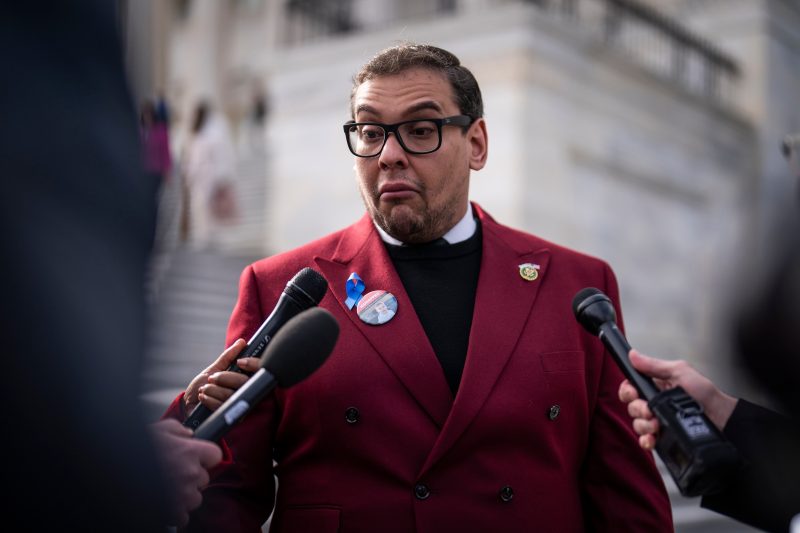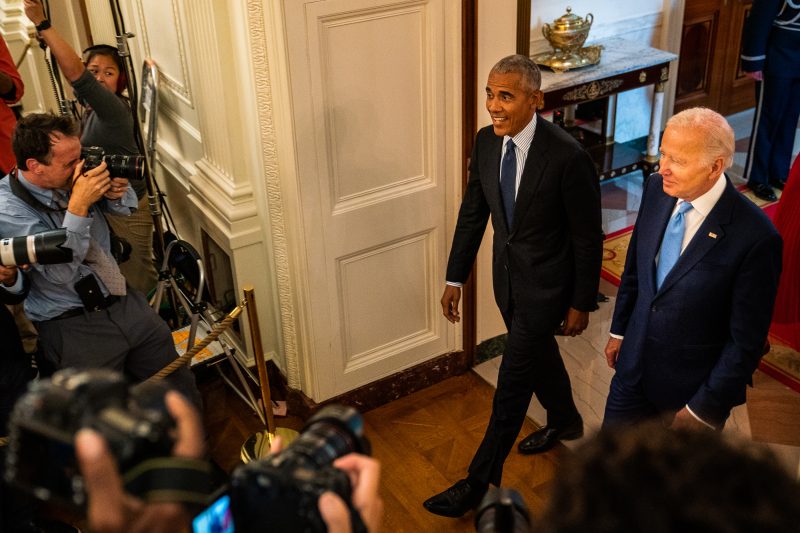The GOP’s pickle on expelling George Santos

A much-awaited and brutal House ethics committee report on Rep. George Santos (R-N.Y.) has injected the effort to expel him with new momentum — potentially setting him up to become the first member since 2002 and only the sixth ever to be ousted.
The situation is particularly fraught for Republicans who have spent the better part of a year punting on hard decisions about Santos’s fate.
The ethics report greatly expands on what’s known about Santos’s documented and alleged misdeeds. What was initially a story about Santos’s serial lies soon came to be about alleged campaign finance violations and other crimes. The report goes even further than that, painting a picture of a man bent on misusing his political career at the expense of real people.
The report found “substantial evidence” that Santos knowingly violated many House rules, ethical guidelines and even criminal laws. (Santos is also under a 23-count criminal indictment.) It found that he “sought to fraudulently exploit every aspect of his House candidacy for his own personal financial profit,” “blatantly stole from his campaign” and “deceived donors.”
The next big question is whether this marks the end of Santos’s political career. Democrats and Republicans quickly said they plan to push privileged resolutions forcing a vote on his expulsion.
An expulsion vote failed earlier this month, with Santos apparently saved in part by the House ethics committee signaling that it would issue its report shortly. Both Republicans and Democrats voted against expulsion while emphasizing the need to await due process.
But some Republicans have set the bar higher, signaling that Santos’s criminal trial — set for September — should be allowed to play out. And the very dynamic that has prolonged Santos’s career before still looms: The Republicans have a very narrow House majority.
As things stand, they can lose only three of their own votes if Democrats are united against something. And Democrats would probably be favored to win a special election in his blue-leaning Long Island district.
Rep. Troy E. Nehls (R-Tex.) was transparent about that raw political calculus, asking Axios “why would we want to expel a guy … [when] we’ve got a three-seat, four-seat majority. What are we doing?” Points for honesty, at least.
Here’s where the math stands after the previous expulsion vote:
The vote requires a two-thirds majority.The previous vote failed to win even a majority, with about 46 percent overall voting in favor. While 24 House Republicans voted yes, 31 House Democrats voted no. An additional 41 members voted “present” or missed the vote.If all Democrats now voted in favor, about 77 House Republicans would be needed to expel him — 53 more than did so last time.
There are already signs that the vote could at least be close. Several Republicans who voted no or “present” before the ethics report quickly signaled that they’ll now vote to expel.
But as the count approaches the necessary threshold — and Santos’s seat appears to be in jeopardy — things could get interesting. And there are certainly factors pushing hard in each direction.
In addition to considering the raw politics of the House, Republicans have signaled an understandable desire to raise the bar for such sanctions, what with their presumptive presidential nominee the subject of four indictments of his own. If one man from Queens can be expelled for such well-documented but still-alleged misdeeds — without a criminal conviction — what about another? Indeed, many top Republicans have signaled that they will stand by Donald Trump even if he is convicted.
There are some notable differences that could compel enough Republicans to vote yes without fearing how that might look vis-à-vis Trump.
Few Republicans not named George Santos have even floated the idea that his case is about political targeting, as Trump and many in his party have claimed, without evidence, about his own prosecutions. The ethics report is bipartisan and the votes were unanimous. That includes Santos’s GOP colleagues, who were charged with evaluating the evidence. In Trump’s case, they could at least say the voters should decide for themselves; they are in no position to officially sanction a man who holds no office and hasn’t been officially rebuked by their own body.
(Santos said Thursday that he won’t seek reelection, seemingly trying to give his GOP colleagues some cover.)
But it’s much more difficult to explain those differences than it would be to just proclaim that the standard is: Let the criminal cases play out and go from there.
At the same time, that’s a harder path when a substantial number of House Republicans — apparently a few dozen now — say Santos warrants expulsion. And House Republicans at some point might ask themselves if the political costs of keeping him around begin to outweigh the benefits.
Santos is a headache for all of them, plain and simple, with the evidence of his misdeeds only growing. Keeping him around only invites further headaches on that front, along with feeding a perception that they refused to believe and act upon what was right in front of their eyes. Imagine Santos’s criminal case playing out during the stretch run of the 2024 campaign.
It’s no coincidence that it’s Santos’s New York GOP colleagues who have led the expulsion push. They obviously fear the impact he could have on their own reelection bids, with many of their districts vulnerable. Republicans might be giving away a seat for the remainder of this Congress, but that seat is probably gone next year anyway. And what if his continued presence imperils multiple seats in the 2024 election?
There are no easy answers here, politically speaking. But this was always a situation that was going to force Republicans into some uncomfortable choices. And those choices have only become more uncomfortable over time.




